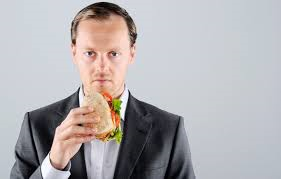Compulsive Overeating: The First 3 Steps To Recovery
Posted 24th of October 2018 by Gill Wier

This post was contributed by Naomi Nygaard who specialises in working with eating issues and addiction.
As a therapist, I specialise in helping people find freedom from compulsive cycles of all types. I have found that recovery from over-eating follows a similar recovery path as other addictive and compulsive behaviours. Here are the initial three steps to take when embarking on a journey of releasing unwholesome relationships to food:
1. Slowing the cycle:
When we have been doing a behaviour for many years, there is a momentum that gathers which can be hard to halt from one day to the next. We must bring awareness to the experience of overeating right when it is happening. When standing eating at the open fridge, how does one’s body feel? Is the heart pounding? Are muscles in the neck or belly tense? How easily does the breath flow, and can it slow down if we try? How are we feeling when we are blended with the overeating part of us?
2. Calming the critical voices:
If finding an end to our cycle of overeating had worked through self-critical thoughts, we would likely have released our habit long ago. In fact, the opposite is true: the more we beat up on ourselves, the more deeply entrenched our behaviour becomes. The criticism generates inner-shame (“I’m worthless – I can’t even eat sensibly!” “ I’m a greedy pig!” “I’m a failure at losing weight…”) The more we shame ourselves, the worse we feel, and the worse we feel, the more the over-eating part of us wants us to feel better the only way it knows how: over eating.
3. Open-hearted self-enquiry:
Take some time to sit and quietly reflect on our experience of overeating. It can be helpful to keep a journal just for this this purpose, adding to it each time eating has bought up criticism and shame. Asking the inner-critic to relax, see if you can connect with the part that overeats from a curiosity and openness. Inquire as to its motivations: What is it’s role in your system? Does it like it’s role? Would it rather being doing something else for you? See if you can discover more about this part from the understanding that it is somehow trying to help you. Forming a relationship with this part based on openness and curiosity lays the foundations for the recovery steps to come.
To explore recovery from over-eating and all types of addiction, either for yourself or a loved one, feel free to book an appointment with me here at Sheffield Central Counselling.
Overeater Anonymous is a valuable resource for anyone faced with the challenge of recovery from food compulsion and obsession: https://www.oagb.org.uk
